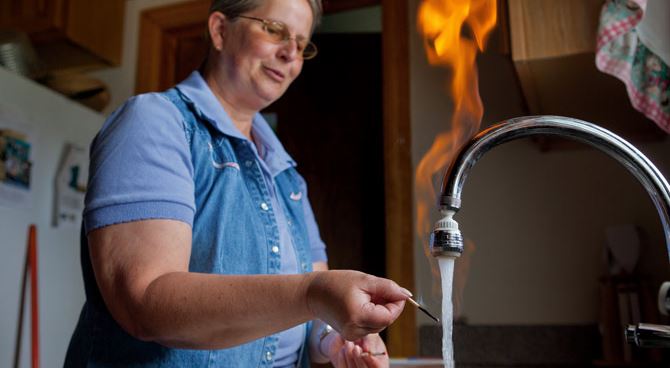Purpose
- Investigates the causes of economic imbalances.
- Investigates causes tending to destroy or impair the free-market system.
- Explores and develops market-based solutions.
Summary
Climate risk bonds are tools national, state, and local governments can use to internalize the social costs of carbon emissions at the point of extraction, thereby making a crucial contribution to the climate fight. Before any new oil, gas, or coal projects are approved, fossil fuel companies should be required to post climate risk bonds, which can be set at an amount determined by the life cycle emissions of any new well or mine together with the social cost of carbon. An additional environmental bond could be imposed for, say, water contamination or earthquake damages, a risk of oil or gas “fracking” now being borne by the host communities. This bond would be structured in a parallel way: Require the company to pay, up front, for the anticipated property damages, just as they would for the costs of climate havoc. Should no damages take place during the period of extraction, the company would be eligible for a reimbursement of the posted bond.

Tapwater lit on fire after fracking nearby. Methane in well water can be linked to some fracking that is not done safely and it can be due to background levels in the aquifer. The point of this photo is not to conclusively suggest one or the other. But as we move into getting industry to provide up front risk bonds, they will need to ensure that methane levels in drinking water (and, more importantly, other contaminants associated with fracking) are reliably tested before and after fracking if they are to get their bonds back.
Description
Working in collaboration with several pro bono attorneys and non-profit groups, we have reviewed several bonding programs that are currently in place for the production of oil, gas, and coal, and reviewed local jurisdictions’ legal authority to enhance bonding requirements to ensure that industry is held responsible for risks.
The regulation of oil and gas production has been primarily regulated by the states. While most states have bonding to ensure abandoned wells that might leak oil and gas into groundwater are contained, and many states and localities require financial assurance bonds, often the bonds are insufficient to protect against pollution risks or the increased risks caused by modern oil and gas production techniques, such as hydraulic fracturing. Together with our legal team, we explored the current regulatory regimes for oil and gas in Texas, Colorado, and California, where several jurisdictions have recently imposed moratoria on hydraulic fracturing. We are also working on reviewing the legal opportunities for pursuing climate risk bonds in Oregon.
The next step is to present the findings from that legal research to potential interested parties in the jurisdictions where fossil fuel extraction, transport, storage or export are taking place in order to address risks that are not currently covered by the bonds imposed on the state or local level.
Purpose
The fossil fuel industry is among the most profitable industries on the planet. Yet that profit has come at great expense--to the planet and its people. By beginning to internalize the very real costs the fossil fuel industry is externalizing on the people and the planet, we can begin to correct the economic imbalances that currently favor the continued and unrestrained exploitation of fossil fuels.
Climate change has been called the "greatest market failure of all time"--and rightly so. To correct this market failure we need to use a variety of tools, including climate risk bonds, to ensure this market failure is as short-lived as possible.
Climate risk bonds and other environmental bonds are tools we can use, right now, in our communities, to begin to level the playing field in favor of clean energy and speed the transition to a just and sustainable economic paradigm, while sending a clear market signal that says, “The polluter must pay and pay up-front.”
Scope
We are working with legal partners in developing the legal framework for the "climate risk bonds" concept. Once a legal strategy is clear, our intent is to pilot the concept in a state, city or county where oil, gas and coal extraction, transport , storage or export is taking place.
Information Dissemination
Once the report is done, we will be presenting it to interested stakeholders via webinar. Should there be sufficient interest after the webinar is conducted, we will develop a coordinated plan with local officials around how best to operationalize the climate risk bonds.
Amount Approved$15,000.00
on 2/23/2015
(Check sent: 3/4/2015)